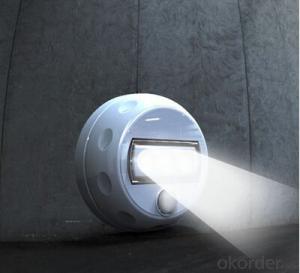Solar panels have been a hot topic for quite some time now, and for good reason. They’re a great way to harness the power of the sun and use it to power your home. But with so many options out there, it can be a bit overwhelming to figure out where to start. That’s why we’re here to help with a comprehensive guide to solar panels for residential use.
Why Choose Solar Panels?
The first thing you might be wondering is why you should even consider solar panels. Well, there are several reasons. For starters, they’re good for the environment. By using solar panels, you’re reducing your carbon footprint and helping to combat climate change. Plus, they can save you a ton of money on your energy bills. Over time, the cost of installing and maintaining solar panels can be offset by the savings you’ll see on your monthly energy bill. And let’s not forget the potential tax credits and incentives that are available to those who install solar panels. It’s a win-win situation.
Understanding Solar Panel Types
Before you start shopping for solar panels, it’s important to understand the different types available. There are three main types: monocrystalline, polycrystalline, and thin-film. Monocrystalline panels are the most efficient and therefore the most expensive. Polycrystalline panels are slightly less efficient but also less expensive. Thin-film panels are the least efficient but can be a good option for those with limited space or budget. Each type has its pros and cons, so it’s important to do your research and choose the one that’s right for you.
Factors to Consider When Choosing Solar Panels
When choosing solar panels, there are several factors to consider. First, you’ll want to think about the size of your home and how much energy you typically use. This will help you determine the size of the solar panel system you’ll need. You’ll also want to consider the amount of sunlight your home receives. If your home is in a sunny area, you’ll be able to generate more power with your solar panels. Additionally, consider the angle and orientation of your roof. South-facing roofs are typically the best for solar panel installation.
The Installation Process
The installation process for solar panels can seem daunting, but it doesn’t have to be. First, you’ll need to find a reputable solar panel installer. This can be done through online research, asking for recommendations from friends or family, or checking with your local utility company. Once you’ve found an installer, they’ll come to your home and assess your needs. They’ll take into account the size of your home, the amount of sunlight it receives, and the condition of your roof. From there, they’ll create a customized plan for your solar panel installation.
Maintenance and Care for Your Solar Panels
One of the best things about solar panels is that they require very little maintenance. However, it’s still important to take care of them to ensure they continue to function properly. Regularly cleaning your solar panels can help to keep them running efficiently. You’ll also want to check for any damage or wear and tear and address it as needed. And don’t forget to keep an eye on your inverter, as this is a crucial component of your solar panel system.
Going Off-Grid with Solar Panels
For those who are really looking to reduce their reliance on the grid, solar panels can be a great way to go off-grid. By installing a solar panel system along with a battery storage system, you can store the energy you generate for use during times when the sun isn’t shining. This can be a great option for those who live in remote areas or who simply want to be more self-sufficient.
The Future of Solar Panels
The future of solar panels is bright, and it’s only getting brighter. As technology advances, solar panels are becoming more efficient and affordable. This means that more and more people are able to take advantage of the benefits of solar energy. And with the increasing awareness of the importance of renewable energy sources, it’s likely that solar panels will continue to be a popular choice for homeowners in the coming years.
Conclusion
In conclusion, solar panels are a fantastic investment for any homeowner looking to save money, reduce their environmental impact, and potentially increase the value of their home. With the right research and planning, installing solar panels can be a smooth and rewarding process. So why not take the leap and start harnessing the power of the sun today?

